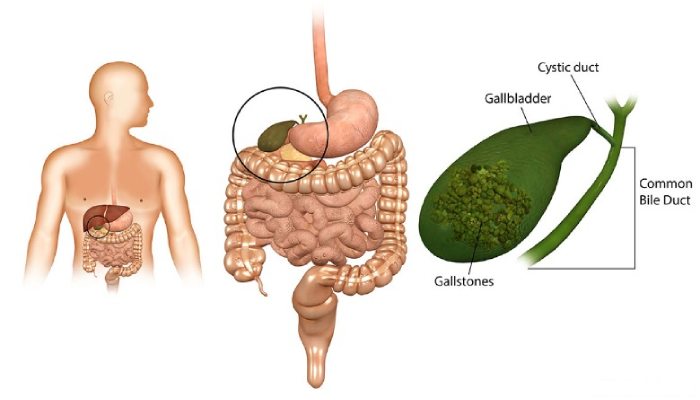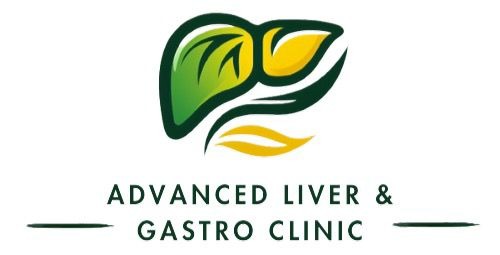Overview
Gallstones are hardened deposits of digestive fluid that form in the gallbladder, a small organ located beneath the liver. The gallbladder stores bile, which aids digestion. Gallstones can vary in size from a grain of sand to a golf ball, and some individuals may develop multiple stones at once. While silent gallstones may not require treatment, symptomatic gallstones can cause pain and complications.
For expert gallstones treatment in Pune and advanced gallbladder surgery, consult Dr. Ujwal Zambare, the Best Gastroenterologist & Gallbladder Stone Specialist in Pune. Get personalized care for effective relief and recovery.

What Are The Symptoms Of Gallstones?
Gallstones may cause no signs or symptoms. If a gallstone lodges in a duct and causes a blockage, the resulting signs and symptoms may include:
- Sudden and rapidly intensifying pain in the upper right portion of your abdomen
- Sudden and rapidly intensifying pain in the center of your abdomen, just below your breastbone
- Back pain between your shoulder blades
- Pain in your right shoulder
- Nausea or vomiting
What Are The Causes of Gallstones?
- Your bile contains too much cholesterol. Normally, your bile contains enough chemicals to dissolve the cholesterol excreted by your liver. But if your liver excretes more cholesterol than your bile can dissolve, the excess cholesterol may form into crystals and eventually into stones.
- Your bile contains too much bilirubin. Bilirubin is a chemical that’s produced when your body breaks down red blood cells. Certain conditions cause your liver to make too much bilirubin, including liver cirrhosis, biliary tract infections and certain blood disorders. The excess bilirubin contributes to gallstone formation.
- Your gallbladder doesn’t empty correctly. If your gallbladder doesn’t empty completely or often enough, bile may become very concentrated, contributing to the formation of gallstones.
How are candidates for Liver Transplant Determined?Risk Factors
Factors that may increase your risk of gallstones include:
- Being female
- Being age 40 or older
- Being overweight or obese
- Being sedentary
- Being pregnant
- Eating a high-fat diet
- Eating a high-cholesterol diet
- Eating a low-fiber diet
Prevention
- Don’t skip meals. Try to stick to your usual mealtimes each day. Skipping meals or fasting can increase the risk of gallstones.
- Lose weight slowly. If you need to lose weight, go slow. Rapid weight loss can increase the risk of gallstones. Aim to lose 1 or 2 pounds (about 0.5 to 1 kilogram) a week.
- Eat more high-fiber foods. Include more fiber-rich foods in your diet, such as fruits, vegetables and whole grains.
- Maintain a healthy weight. Obesity and being overweight increase the risk of gallstones. Work to achieve a healthy weight by reducing the number of calories you eat and increasing the amount of physical activity you get. Once you achieve a healthy weight, work to maintain that weight by continuing your healthy diet and continuing to exercise.
Request a Call Back!
Experiencing gallbladder issues or gallstones? Request a call back from Dr. Ujwal Zambare, the Best Gastroenterologist & Gallbladder Stone Specialist in Pune. Get expert consultation for gallstones treatment and gallbladder surgery in Wakad, Pune. Contact us today for personalized care!
